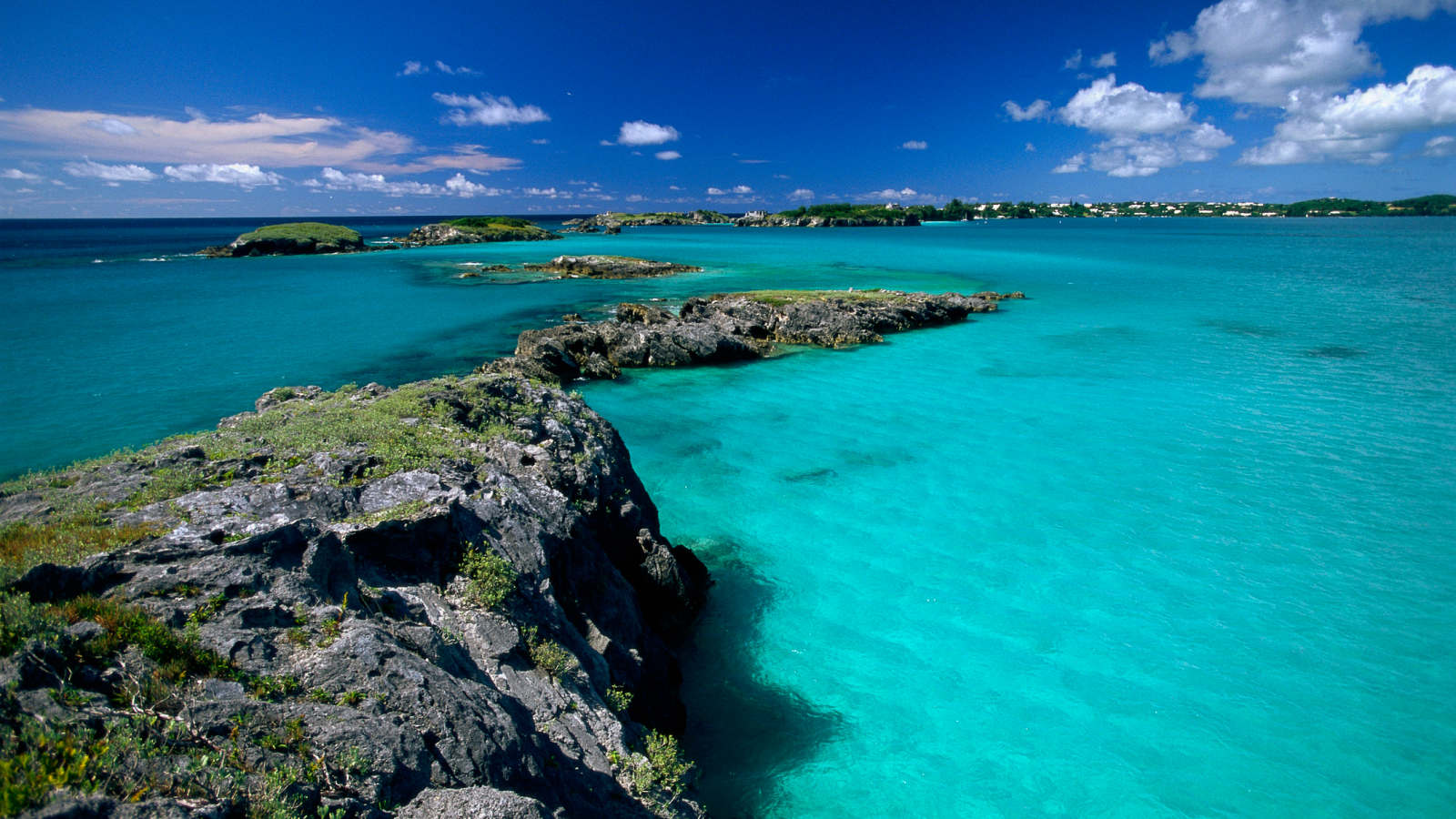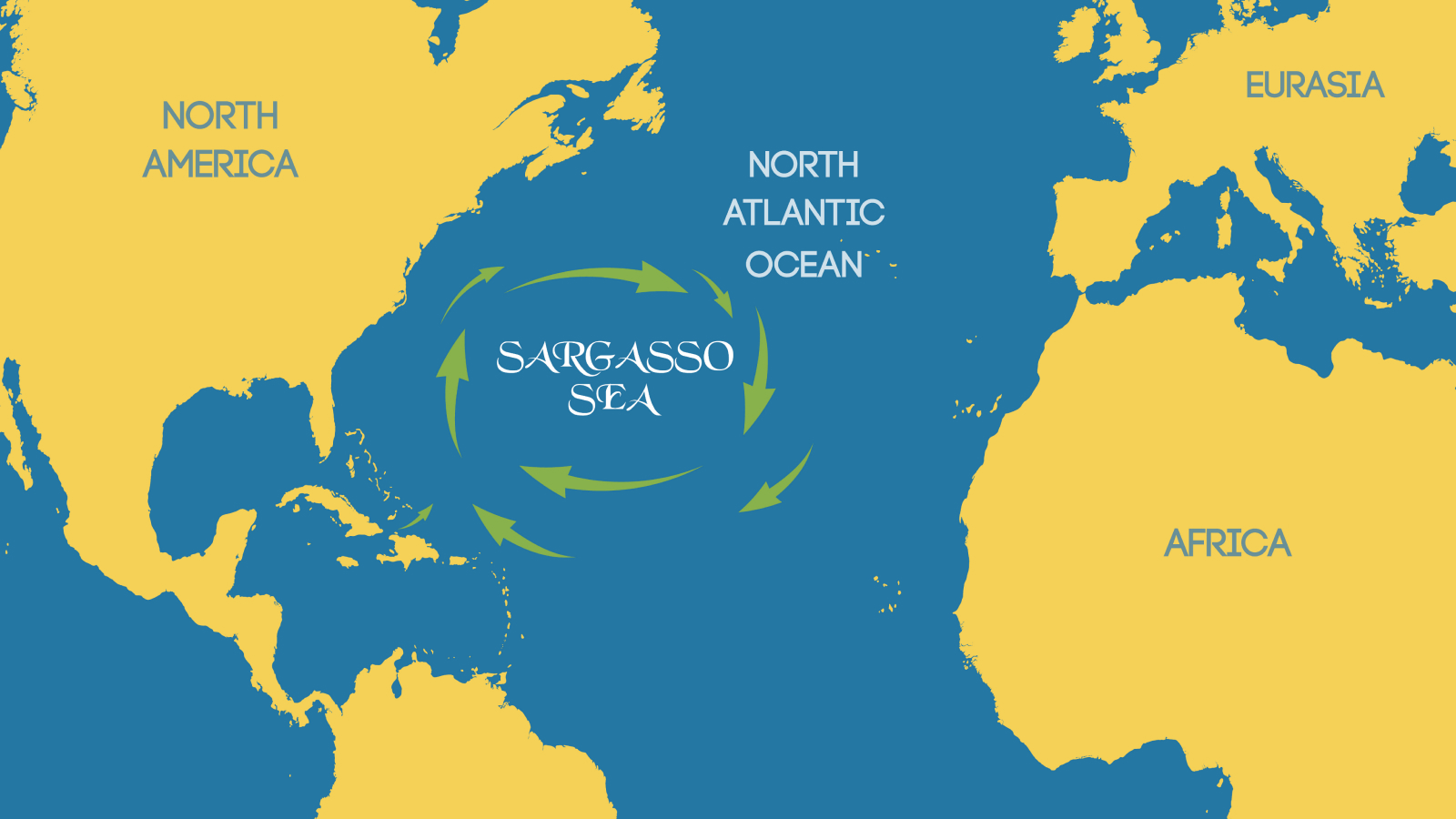Sargasso Sea around Bermuda is now at its hottest, most acidic and oxygen-starved than at any point in recorded history
The Sargasso Sea in the Atlantic Ocean is now at least 30% more acidic and 1.8 degrees Fahrenheit warmer than it was 40 years ago — and climate change is to blame.

Get the world’s most fascinating discoveries delivered straight to your inbox.
You are now subscribed
Your newsletter sign-up was successful
Want to add more newsletters?

Delivered Daily
Daily Newsletter
Sign up for the latest discoveries, groundbreaking research and fascinating breakthroughs that impact you and the wider world direct to your inbox.

Once a week
Life's Little Mysteries
Feed your curiosity with an exclusive mystery every week, solved with science and delivered direct to your inbox before it's seen anywhere else.

Once a week
How It Works
Sign up to our free science & technology newsletter for your weekly fix of fascinating articles, quick quizzes, amazing images, and more

Delivered daily
Space.com Newsletter
Breaking space news, the latest updates on rocket launches, skywatching events and more!

Once a month
Watch This Space
Sign up to our monthly entertainment newsletter to keep up with all our coverage of the latest sci-fi and space movies, tv shows, games and books.

Once a week
Night Sky This Week
Discover this week's must-see night sky events, moon phases, and stunning astrophotos. Sign up for our skywatching newsletter and explore the universe with us!
Join the club
Get full access to premium articles, exclusive features and a growing list of member rewards.
The Sargasso Sea near Bermuda is warmer, saltier and more acidic than it has ever been since measurements began in 1954 — and the impact of such significant changes could be far reaching, researchers have warned.
The scientists made the startling discovery while studying decades' worth of data from the Bermuda Atlantic Time-series Study (BATS), the world's longest-running record of oceanographic properties that collects deep-sea measurements in the Atlantic Ocean near Bermuda.
The impacts of the climate-driven changes in the Sargasso Sea may have wide-reaching impacts as its water is carried to other ocean systems.
In a new survey, published Dec. 8 in the journal Frontiers in Marine Science, the researchers revealed over the last 40 years, that the ocean has warmed by around 1.8 degrees Fahrenheit (1 degree Celsius) and has drastically increased in salinity and acidity. The survey also showed a loss of dissolved oxygen.
Related: The surface of the ocean is now so hot it's broken every record since satellite measurements began
"The ocean heat content in the 2020s is unparalleled to the longest record we have going back to the 1950s," lead author Nicholas Bates, a chemical oceanographer at Arizona State University's Bermuda Institute of Ocean Science, told Live Science.
Bates noted that current temperatures likely also smash records going back even further. "This is the warmest we've seen for millions and millions of years," he said. The scientists attributed the dramatic rise to climate change.
Get the world’s most fascinating discoveries delivered straight to your inbox.

The survey also showed that the acidity of the Sargasso Sea has increased by 30% to 40% in the last 40 years. The rise of carbon dioxide in the atmosphere from the burning of fossil fuels leads to carbon dioxide dissolving into the ocean. This can increase its acidity as the dissolved gas turns into carbonic acid, as well as carbonate and hydrogen ions.
The emission of greenhouse gases has also caused global ocean temperature rise. Oxygen dissolves less easily in warmer waters, leading to a nearly 7% decrease in oxygen in the Sargasso Sea.
Changes in air and ocean temperatures can also affect the rate that ocean water evaporates. Evaporation removes fresh water in the ocean, and precipitation returns it. The balance of the two processes can affect salinity.
"If you warm the planet and change [the concentration] of greenhouse gases, you change the global cycling of water — where it rains or where it doesn't," Bates said.
These changes may adversely affect local marine life as well as the coral reefs of Bermuda, the team said, which now face a dramatically different ocean chemistry from the 1980s.
What happens in this part of the ocean can also have a far wider impact. The Sargasso Sea is a unique region in the North Atlantic Ocean, which not only serves as a rich marine ecosystem but also a vital node in global ocean circulation. It is bounded by four currents: the Gulf Stream to the west; the North Atlantic Current to the north; and the Canary Current as well as the North Atlantic Equatorial Current to the east.
Bates stressed that climate change could affect other ocean systems in different ways, and what exact impact the observed changes will have on the local Sargasso Sea ecosystem and wider ocean are still uncertain.
He added that on a personal level, he is now concerned we may have passed a threshold "where there's potentially no return for quite a long time."

Jacklin Kwan is a freelance journalist based in the United Kingdom who primarily covers science and technology stories. She graduated with a master's degree in physics from the University of Manchester, and received a Gold-Standard NCTJ diploma in Multimedia Journalism in 2021. Jacklin has written for Wired UK, Current Affairs and Science for the People.
 Live Science Plus
Live Science Plus










